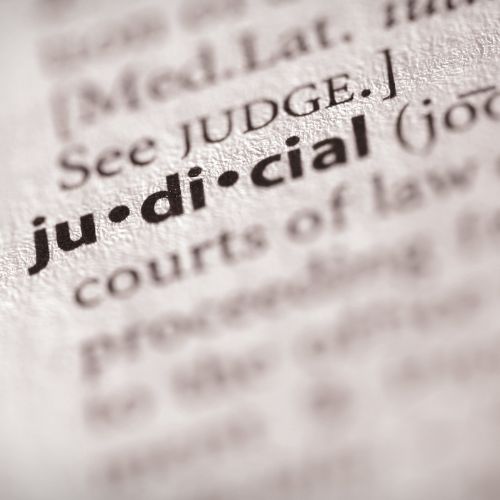Guidance on the grounds on which the decision of a public body may be challenged by way of judicial review and the means by which this might be funded.
What is Judicial Review?
Judicial review is a legal procedure by which the High Court can review a decision of, or inaction on the part of, a public body, official, or government department. Depending on the circumstances of the matter being reviewed, the High Court has the power to strike down (or quash) a decision, or alternatively has the power to require a public body to take specific action, or indeed to refrain from taking certain action.
In judicial review the High Court does not act as a court of appeal. It exercises a relatively narrow, supervisory power and generally it cannot, and will not, substitute its own view for the view of the public body being reviewed. However, the supervisory power of the High Court should not be undermined so as to distract from its significance. It acts as an important check and balance against government bodies abusing their powers or failing to honour their legal responsibilities. It is therefore an important remedy for a citizen who wishes to hold their government to account. As Mr Justice McCloskey stated in Re Board of Governors of Loreto Grammar School’s Application [2011] NIQB 36: “. . . Stated succinctly, the function of the High Court is to ensure that public authorities observe all relevant legal rules, standards and requirements and act within the limits of their powers …”
When can a decision be judicially reviewed?
Judicial review is only available in relation to public law issues. Public law is the set of legal principles which govern the exercise of power by public bodies, for example, government ministers and departments, local authorities, the prison service, the health and social care Trusts, coroners’ courts and many others.
In deciding whether a decision may be the subject of a judicial review, the main consideration is the nature of the power or function which is being exercised, in that:
In some cases a private body may be exercising public law functions
In some cases a public body may be exercising private law functions
– but only public law functions can be the subject of judicial review
What are the grounds for Judicial Review?
There are various grounds upon which a judicial review may be sought, as summarised below: i) Illegality:
• acting contrary to the law
• erring in law and/or misdirecting yourself in law; put simply – failing to understand what the law says
• exceeding powers conferred by law
• acting without having the power to act
• use of legal power for an improper purpose
• improperly failing to exercise discretion
• unlawfully delegating a legal function or power
ii) Procedural Impropriety:
• Failing to adhere to established procedures
• Failing to adhere to the principles of natural justice; that is – by not affording a person affected by a decision the right to be heard from, or by allowing bias or impartiality to affect a decision
iii) Irrationality:
• Procedural irrationality: taking irrelevant considerations into account or failing to take relevant considerations into account
• Substantive irrationality: where no reasonable decision-maker could have come to that decision
iv) Breach of legitimate expectation:
A legitimate expectation is a reasonable expectation on the part of a citizen that a public body will act in a certain way. The expectation can be created through representations made by a public body; for example, where a promise is made by the public body that they will act in a certain way, or do something in particular, but they later change their mind. The expectation can also be created not by any specific promise but through past/established practice or the circumstances of the case
v) Mistake of fact
Where there is no factual basis on which the conclusion could have been reached, or where there has been a mistake as to established and relevant fact
vi) Human rights grounds
Section 6 of the Human Rights Act 1998 imposes an obligation on public authorities not to act incompatibly with rights enshrined in the European Convention on Human Rights
What legislation applies to Judicial Review?
Judicial review is governed by the following legislation and protocol:
• Order 53 of the Rules of the Court of Judicature (Northern Ireland) 1980
• Section 18 of the Judicature (Northern Ireland) Act 1978
• Judicial Review Practice Note and Pre-Action Protocol
How could I afford to legally challenge a Public Body in the High Court?
Legal Aid funding continues to be available in appropriate cases and can be sought on an urgent basis. Where Legal Aid funding is not available, sometimes charitable/rights bodies and organisations will offer funding. Insurance can also be purchased to cover legal costs and a protective costs order can be sought in certain circumstances, to insulate against the respondent’s legal costs in the event the judicial review is unsuccessful. Finally, fixed fee arrangements can be negotiated in the event that a judicial review is to be funded privately.
How do I know whether I have grounds to apply for judicial review?
Anyone considering challenging a public body by way of Judicial Review should seek urgent legal advice, as very strict time limits apply in these cases.
Brian Moss at Worthingtons Solicitors has dealt with numerous judicial review applications and would be happy to deal with any enquiries in this area.


